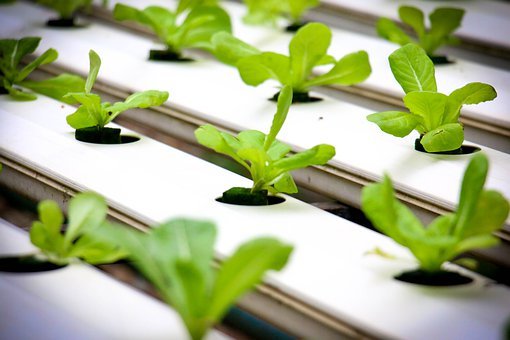USF hydroponic greenhouse project to fight food insecurity across St. Pete area

Through two classes at the USF St. Pete campus, students are able to work directly in the development of a new hydroponic community garden that will provide locals with fresh produce while also teaching students skills for the workforce.
In a partnership with St. Pete Youth Farm, Winnie Mulamba, USF’s sustainability planner, and USF St. Pete professors Herschel Conner and Brandon Shuler have been developing plans for a hydroponic greenhouse — a greenhouse that uses water and nutrient-based plant beds instead of soil — to fight food insecurity within the South St. Petersburg Community Redevelopment Area where a growing part of its residents do not have access to fresh foods.
Across Pinellas County, more than 124,000 residents are food insecure, according to data by Feeding Tampa Bay, which led to the creation of the St. Petersburg City Council’s Food Policy Council.
“There is not a grocery store where the locals can go in and buy fresh produce,” Conner said. “It’s all packaged in gas stations, and it’s the most economically depressed part of St. Petersburg.”
In November, the Ford Motor Company Fund approved a $25,000 grant for Mulamba and her partners at the youth farm to fund the hydroponic greenhouse project. The greenhouse is in development now with plans for it to be unveiled during the summer.
“Seventy percent of the produce grown will be sold to the community, and then 30% will be given to charity through the Daystar Life Center,” Mulamba said.
The greenhouse will be located at the St. Pete Youth Farm, which is about six blocks from the USF St. Pete campus. There are already several above-ground produce beds on the property where tomatoes are grown, but the greenhouse will be a sizable upgrade. St. Pete residents can currently fill out a survey to suggest produce they would like to see grown in the greenhouse in order to guide the implementation of the project.
Mulamba and her partners are also trying to determine what the best method to sell the produce will be, whether it will need to be transported to a farmer’s market or if community members will be willing to come to the greenhouse to get their produce.
USF students are also part of this decision, as two classes on the USF St. Pete campus are designed around the greenhouse project. One of these courses is Conner’s ENC 3371 Rhetorical Theory for Technical Communication, in which students are developing marketing plans, writing production schedules as well as researching and designing the hydroponics system for the greenhouse.
“The writing itself even becomes the service, it’s almost like free labor in a sense,” Conner said. “You try to move beyond that kind of simple common code of incentive and motivation and get into what it feels like to be together and read into the complex texts that comprise our infrastructure.”
Students in Conner’s class are currently in the process of designing the hydroponic systems, but they will be involved in all aspects of the project’s implementation. Students will be doing online research for sources of seeds in February as well as plans for marketing and outreach in March.
Besides working remotely, students will also be doing some work on the greenhouse in person, including planting microgreens and seedlings as well as tending the greenhouse once construction is completed, which is projected to happen in late March.
“I’ve taken the lead of a very small group [approximately seven students] this semester,” Conner said. “They seem excited about the premises, but of course they’re very terrified about the uncertainty of doing a project this way.”
The other course working on the implementation of the greenhouse project is Shuler’s EVR 4873 Environmental Policy and Sustainability in which students engage in the political side of the project, pushing and lobbying for policy initiatives in Florida that could help community gardens.
“I obviously jumped at the chance [to teach this version of the course] because students getting to academic and theoretical underpinnings is important but also familiarizing them with public comment and opinion pieces and other fun projects that I want to be able to get on their resumes,” he said. “They are walking out of the class, but they’re either published, or they’ve done something that has made a difference.”
The course is dynamic, changing content each semester based on the needs and problems in the community. In the past, students of Shuler’s course passed environmental legislation. Last year, he took a group of students to the state Legislature where they got the Clean Water Act passed along with $750 million appropriated for water quality issues.
The hydroponic garden legislation is a natural extension of water quality issues the class tackled in the fall semester, and so he was enthusiastic to adapt the course to the new issue.
“I really want students to see that we came in here with a problem,” Shuler said. “We created a campaign and applied communications, public outreach and legislative pressure, and then students realize how they can use those three things to really amplify your voice to affect change in your community.”
Both courses will be hands-on with the project every step of the way and could end up registering a new group of students in the fall who will work on the production and harvesting cycle of the greenhouse.
“I think it’s amazing being able to do something for the community at USF, that’s why we are here,” Mulamba said. “We are here to teach and also have our students practice what they’re learning so that when they go out to the business or working environment they are able to say, ‘I can do this because I’ve done it before.’”







